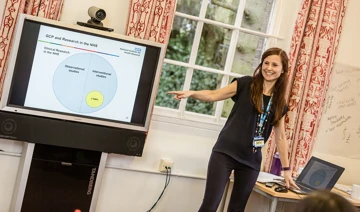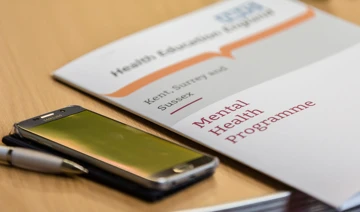GDPR and UK-CRIS
Every person who uses our services has their medical information stored in a personal file called a patient record. Your patient record is stored securely on KMPT computers and is used by clinical staff in the trust providing treatment to you to help make the best decisions about treatment and services for you.
This system is similar across other services providing healthcare in the UK, such as GPs and all hospitals.
As well as being valuable in helping with your personal clinical care, the information stored in patient records can be used to help us understand more about the causes of illnesses and how best to treat them.
This is because they allow us to look at large numbers of people in real-life situations. We can use the information to research patterns and trends and see what works most successfully.
Research is very important for health services - in developing new treatments and improving the care services we provide.
In KMPT, we have a computer system which helps us to carry out research using patient records. The computer system is called CRIS and anonymises all the data so that no-one is identifiable.
Personal information; like your name, your date of birth, your address and your carer’s name, are ‘blanked out’ by the system and are never seen by researcher without your permission.
CRIS helps us look at large amounts of information stored in patient records more easily so we can start to look for answers to questions about the causes of illness and how we can treat them and care for people with these illnesses successfully. Here are some examples of the questions we have been looking at so far:
- Is there a test for those with Alzheimer’s disease that can show if drugs would be the best treatment?
- Do some drugs for schizophrenia affect physical health e.g. diabetes?
- Do people’s home living arrangements affect how long they spend as inpatients, receiving care in hospital wards?
Researchers using CRIS may also link information about your treatment and care in the trust with other aspects of your health. This will help to improve physical and mental health as a whole.
As an example, information about patients who had both mental health illness and cancer was linked to look at the impact of mental illness on cancer survival rates. CRIS enables us to do this in a format that will not identify you.
CRIS transforms clinical information so that it is not identifiable. The computer removes or covers up any information that can identify you. Your name, the name of your carer, your full date of birth, address, postcode and phone numbers are replaced with ‘ZZZZZ’.
CRIS is only available to researchers who have a contract with the trust. CRIS has received ethical approval from an independent (non-trust) committee as a safe, secure and confidential information source for research.
The NIHR produced a leaflet on how health research can improve services. It can be accessed here:
National Institute for Health Research (NIHR) leaflet - Your health records save lives
If you would like to find out more about taking part in research studies relevant to your health in the trust, you can speak to your care co-ordinator.
If you would prefer your patient record not to be used for research studies, please contact the CRIS Administrator at kmpt.research@nhs.net





